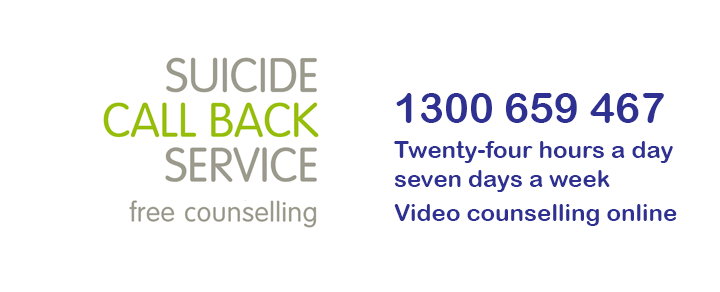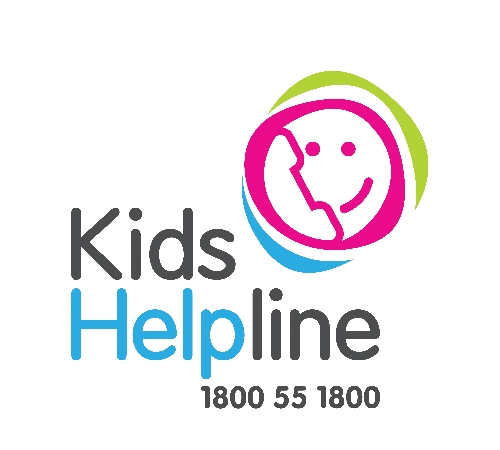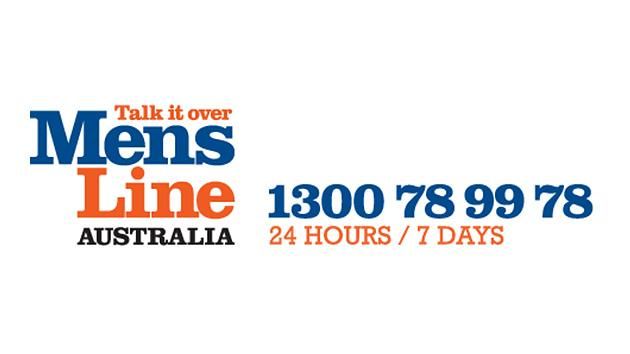Mental Health
- Depression
- Anxiety
- Self-Harm and Suicide
- Trauma
- Grief
- Self-care
- Depression Related to Motherhood
- Helplines / Useful Information
Depression

Women who are pregnant or have had a baby recently may also experience depression and not ask for help. Some people feel better with therapy or changes to diet and exercising more. Other people might need medication for some time.
1 in 6 women and 1 in 8 men will experience some level of depression at some point in their lives.
Depression happens when you feel sad, lonely and sometimes hopeless for a long time (usually more than 2 weeks).
Some people have trouble doing everyday things like getting out of bed, working or socialising with family and friends.
Other people may force themselves to be very busy and socialise a lot but still have a constant feeling of sadness or being alone
Many men experience this for years without getting help
Anxiety

1 in 3 women and 1 in 5 men will experience anxiety at some point in their lives.
Anxiety happens when you have ongoing feelings of worry or stress that won’t go away.
Sometimes these feelings get worse around certain stressors (stressors are things or situations that make stress you, for example job interviews, paying bills, moving, relationship problems)
Some people feel better with therapy or changes to diet and exercising more. Other people might need medication for some time.
Self-harm and Suicide
Sometimes life can feel very painful and you might be struggling to cope. You might want to hurt yourself or think about ending your own life.
You are not alone. It is OK to ask for help. There are people and organisations who want to help you.
If you are in an emergency, or at immediate risk of harm to yourself or others, please contact emergency services on 000 or visit Beyond Blue‘s Get support now page for other services. Beyond Blue shares the following information on signs of self-harm or suicidal thoughts.
Non-verbal indicators may include:
- Social withdrawal
- A persistent drop in mood
- Disinterest in maintaining personal hygiene or appearance
- Uncharacteristically reckless behaviour (risk taking)
- Poor diet changes, rapid weight changes
- Being distracted
- Anger
- Insomnia (difficult falling or staying asleep)
- Alcohol or drug abuse
- Giving away sentimental or expensive possessions
Indirect verbal expressions may include:
- Hopelessness
- Failing to see a future
- Believing they are a burden to others
- Saying they feel worthless or alone
- Talking about their death or wanting to die.
Beyond Blue and many other organisations recommend sharing your thoughts with someone you trust and feel comfortable with – this could be someone in your family, a friend, a teacher, doctor or other health professional. Check out the Myths and Facts on suicide here.
If you are worried for yourself or someone else, please reach out for help. Here are some organisations that you can trust:
Beyond Blue: Get Help Now or call 1300 22 4636

Suicide Call Back Service or call 1300 659 467

Lifeline or call 13 11 14

Kids Helpline or call 1800 551 800

MensLine Australia or call 1300 78 99 78

Remember you are not alone. It is OK to ask for help. There are people and organisations who want to help you.
Trauma
Your life experiences can affect the way you think, feel and act. For example:
- Being a refugee or asylum seeker
- Experiencing war or natural disasters
- Experiencing physical or sexual assault
- Experiencing abuse or ongoing discrimination
Everyone feels differently during hard situations. It is OK to feel sad, scared, tired and angry about the things you are living
You have the right to get better and to not feel this way forever.
Getting help is important to moving on with your life and feeling safe and happy again. Talking to someone, art therapy, exercise and meditation can also help.
Using drugs or alcohol to cope can make things more difficult so it is important to ask for help if you are needing these things to get through each day.
If you have experienced trauma and torture in your homeland, there are specialised services for you throughout Australia that can help you.
These same services might not offer support to help you cope with the difficulties that you might have experienced since you arrived in Australia.
Call Lifeline if you are unsure. You can use a TIS interpreter to speak to a trained counsellor about any problem that you might be worried about.
You are not alone. There are people who can help you.
Learn more here:
Grief
Everyone experiences grief and loss at some point in their life. Everyone copes with this experience differently
It is important to allow yourself time to grieve and heal.
Grieving can take time, so be patient as you work through your emotions. You may feel differently about your experience at different times, so you can try different coping strategies that might work for you including:
- Allow yourself up to 20 minutes each day to grieve by taking time to be alone.
- You can think, cry, pray, meditate, write or do anything else that helps you.
- Journal – Write about your feelings and about the person you are grieving. This can help you relieve stored emotions and show your progress.
- Allow yourself to cry and work through your grief. Don’t worry if you can’t cry, because people work through grief differently.
- Talk it out – Grieving can feel lonely, so talk to someone who may have been through a similar experience or think about joining a support group.
Self-care
Self-care is any activity that can help you feel healthy, relaxed and happy.
Making time for self-care regularly allows you to feel better physically, emotionally and mentally. There are many ways to look after your health even when you don’t think you need it. It helps if you can:
- Eat well and exercise regularly
- Get enough sleep and set aside some time each day to relax
- Put time into activities and relationships that make you feel good
- Create some short-term and long-term goals to look forward to
- Try to deal with problems instead of letting them build up
- Be aware that alcohol and drugs can affect your state of mind and relationships.
Depression Related to Motherhood
Experiencing depression and anxiety during pregnancy and after birth is common. If you feel sad or worried for more than a few days, this is not normal and it is OK to ask for help. Sometimes these feelings can last for weeks or months and it is OK to ask for help then too.
Many mothers do not ask for help because they believe that parenthood should only be a happy occasion and are afraid other people will judge them.
If you ask for help or show signs of depression or anxiety your midwife or doctor may ask you to answer some questions on a form. This is known as the Edinburgh Postnatal Depression Scale (EPDS). The EPDS is a set of 10 screening questions that your midwife will ask you to fill out early in your pregnancy. You may be asked to repeat the EPDS closer to birth or after your baby is born if they have concerns but they will talk to you about this. Your doctor or maternal child health nurse may also ask you to fill out once you’ve had your baby.
No one has the right to take your baby away from you because you are sad or worried about things.
There are programs that can help you feel better and bond with your baby, some will even let you and your baby stay overnight in a care setting, together.
You have a right to ask for help and feel better.
Asking for help early on can make you feel better quicker and make pregnancy and motherhood a more enjoyable experience.
Learn more here:
Here are some helplines
| Service | Phone Number | Website |
|---|---|---|
| Lifeline – 24 Hour Helpline | www.lifeline.org.au | 13 1114 |
| Kids Helpline – 24 Hour Helpline | www.kidshelp.com.au | 1800 55 1800 |
| Men’s Helpline Australia – 24 Hour Crisis Line | www.menslineaus.org.au | 1300 789 978 |
| ACT Companion House – Assisting Survivors of Torture and Trauma | www.companionhouse.org.au | 02 6251 4550 |
| NSW Service for the Treatment and Rehabilitation of Torture and Trauma Survivors (STARTTS) | http://www.startts.org.au | 02 9794 1900 |
| QLD Queensland Program of Assistance to Survivors of Torture and Trauma (QPASTT) | http://www.qpastt.org.au | 07 3391 6677 |
| SA Survivors of Torture and Trauma Assistance and Rehabilitation Service (STTARS) | http://www.sttars.org.au | 08 8346 5433 |
| TAS Phoenix Centre – support Service for Survivors of Torture and Trauma | http://www.mrchobart.org.au | 03 6234 9138 |
| VIC Foundation House – Victorian Foundation for Survivors of Torture (‘Foundation House’) | www.foundationhouse.com.au | 03 9388 0022 |
| WA Association for Services to Torture and Trauma Survivors (ASeTTS) | www.asetts.org.au | 08 9227 2700 |
Useful Links
- What causes anxiety and depression in men?
- Beyond Blue – Depression signs and symptoms
- LGBTQI and mental health
Trauma
Depression related to motherhood
- Understanding perinatal depression and anxiety
- PANDA – Perinatal Anxiety & Depression Australia
- St John of God Mother Baby Unit
Men and Depression (for refugees and migrants)
- New Roots App – Download for Android and iOS
Self Harm or Suicide
- Beyond Blue: Get Help Now or call 1300 22 4636
- Suicide Call Back Service or call 1300 659 467
- Lifeline or call 13 11 14
- Kids Helpline or call 1800 551 800
- MensLine Australia or call 1300 78 99 78
Remember you are not alone. It is OK to ask for help. There are people and organisations who want to help you.
Last reviewed: Jun 2022
